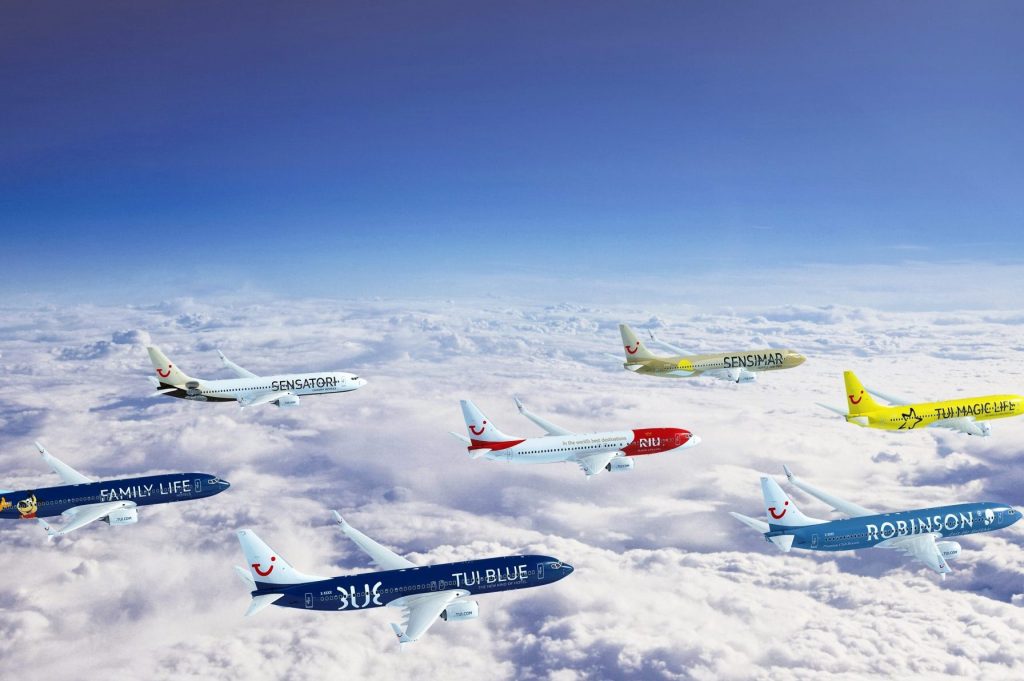Skift Take
TUI clearly thinks having an airline is crucial, but what about its big rival Thomas Cook?
TUI CEO Fritz Joussen believes the company’s in-house airline is still a key component of the overall tourism business despite the broader challenges in the European aviation industry.
Thanks to high fuel prices and increased competition, running an airline — or at least one that is profitable — has become much tougher over the last couple of years.
“I think our aviation operation is essential but it’s very tough,”said Joussen at the ITB Berlin travel conference recently.
When Air Berlin collapsed in 2017, Ryanair and EasyJet ended up buying parts of its operation, but both will take time to produce a profit.
“At the end of the day we have a market where competitors are prepared to lose 300 to 400 million every year,” Joussen said.
The TUI CEO’s comments come at an interesting time for European aviation, especially in the leisure market. Germania went bankrupt in February and TUI’s big rival Thomas Cook is conducting a “strategic review” of its own airline.
Interestingly, German newspaper Handelsblatt has floated the idea of TUI and Thomas Cook potentially merging their airlines. TUI has history in this area, it previously tried to combine its German airline with part of Air Berlin in 2016.
“Overall, we do see some merit in the possible union of the two airlines, but the two companies are fierce rivals for customers and having a shared supply chain might make for a tricky relationship; we therefore would remain skeptical that a deal can be done,” analysts at Bernstein said in a recent note to investors.
Differing Views on Owning an Airline
TUI may view its airline business as essential but Thomas Cook clearly does not.
Although the two companies operate in many similar markets, they are not in the same financial situations. Thomas Cook has struggled in recent times and last year’s hot European summer hit it pretty hard. Selling off part, or all, of its airline would help it bring in extra cash it could use to expand its own-brand hotels.
“[We] have been clear that Thomas Cook doesn’t need to own an airline outright to be a successful holiday company, so long as we retain a strong relationship to provide our customers with the high quality and reliable service they need for their journey,” said CEO Peter Fankhauser on an earnings call in February.
The theory goes that as long as Thomas Cook can secure the necessary seats for its package holidays than it wouldn’t matter.
“Security of supply is a key consideration for Thomas Cook and we highlight that it is particularly reliant on its airline in the UK for tour operator sales,” analysts at Credit Suisse said in a note to investors.
It would be a complex arrangement but not impossible. Potential buyers include: EasyJet, Ryanair, IAG and Lufthansa (especially for Condor) with some speculating it could command a price tag of up to $1.6 billion (£1.2 billion.) This figure seems a little on the high side given its ageing fleet.
If Thomas Cook was to sell its airline then it could pave the way for a takeover of the rest of the company. European Union rules on airline ownership prohibit non-European nationals owning more than 50 percent of an airline but if this was no longer an issue might Fosun, which currently owns 17 percent of the company, be interested in taking full control?
When asked about potentially raising its stake, Fosun Tourism Group CEO Jim Qian told Skift at ITB Berlin: “I cannot say anything…but I think Thomas Cook is good brand and I think [it] is [a] global travel agency with [a] long history and yes, [the] share price now is…there are some difficulties here…”
The Daily Newsletter
Our daily coverage of the global travel industry. Written by editors and analysts from across Skift’s brands.
Have a confidential tip for Skift? Get in touch
Tags: europe, m and a, thomas cook, tourism, tui group
Photo credit: TUI aircraft. The tourism company still has its own airline. TUI Group
